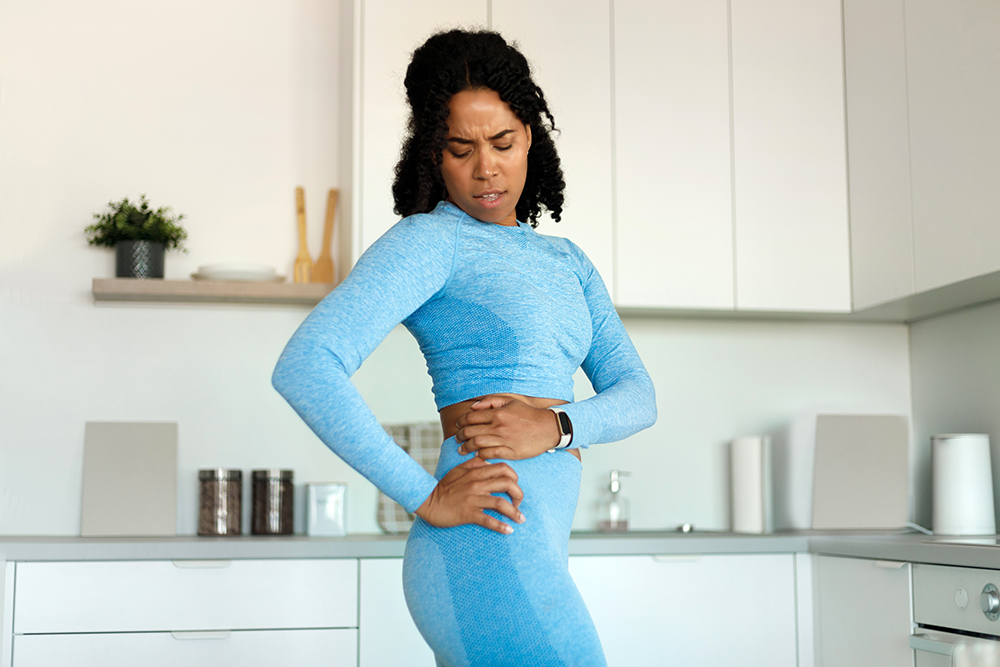Contents
Pregnancy can be a transformative and immensely rewarding journey. When you’re pregnant, specialized treatments focused on women’s health can help you stay healthy and comfortable. There are many issues that can affect you during this tumultuous time. When these issues arise, it is important to stay educated and take action. Understanding the causes of various issues can help you seek the right kind of treatment.
One common issue you may be facing during your pregnancy is hip pain. Hip pain is already fairly widespread in the general population, occurring in around 10% of all people. This percentage typically increases with age and factors such as pregnancy. If you are experiencing hip pain during your pregnancy, seeking treatment is an important step. It can also be helpful to understand exactly why you are experiencing hip pain. By learning about some of the top causes of hip pain during pregnancy, you can stay in the know as you find ways to alleviate and manage your discomfort.
Potential causes of hip pain during pregnancy
- Hormonal changes — When you are pregnant, your body may produce certain hormones at different rates than normal. While these hormonal changes can sometimes be conducive in preparing your body for childbirth, they can also have unwanted effects. One hormone that can contribute to hip pain during pregnancy is called relaxin. Relaxin functions to loosen up your muscles, ligaments and joints. While this can reduce tension, it can also prevent your muscles from providing proper support. A lack of support may lead to pain around the hips and pelvis. With physical therapy, you can discover new strategies designed to help you adjust to hormonal changes. Engaging in focused exercises can help you maintain strength in your hip and pelvis muscles, which may reduce the effect of hormones like relaxin.
- Altered posture — Weight gain is a natural part of pregnancy. As your body adjusts to the changing weight distribution, you may unconsciously change the way you move. Altering your posture and gait can put extra stress on areas that might not be able to provide sufficient support. One area that may bear some of this excess stress is the hips. By shifting your posture during pregnancy, you might put strain on your hips that can result in persistent aches and pains. Your physical therapist can help you make healthy changes to your gait and posture. These changes can be a great way to minimize strain and promote natural body mechanics.
- Sciatica — The sciatic nerve is the longest nerve in the human body. It serves to connect both legs to the lower back. When functioning properly, the sciatic nerve sends sensory information from your legs to your brain. This important nerve is susceptible to pressure, though. Injuries and swelling can pinch the nerve, causing a condition called sciatica. Sciatica can lead to many symptoms including tingling, numbness and painful sensations. You may feel these symptoms in any of the areas where part of the sciatic nerve is present. These areas range from your lower legs to your hips. If you are experiencing leg and hip pain during your pregnancy, the cause might be sciatica. As your fetus develops, it can put pressure on your back. This is one reason why, according to one study, up to 76% of pregnant women experience back pain. The increased pressure on the area around your spine can heighten the risk of your sciatic nerve being compressed. Your physical therapist can help by offering treatments designed to reduce swelling and alleviate pressure on your sciatic nerve.
- SI joint pressure — The sacroiliac (SI) joint functions to connect the pelvis and lower spine. During pregnancy, this joint often experiences increased pressure. The added pressure can lead to hip pain as well as pelvic girdle pain (PGP). Your discomfort may become more intense during activities that put stress on your hips and pelvis. Even simple activities like walking and standing may make your symptoms worse. Your physical therapist can help you manage SI joint pressure with targeted stretches and postural changes.
Lattimore Physical Therapy can help address hip pain during pregnancy
Staying comfortable and safe during pregnancy is important. By addressing your hip pain, our expert clinical team at Lattimore Physical Therapy can help manage your discomfort. Our specialized women’s health services are designed to address various issues you might experience including pelvic floor dysfunction and hip pain. During your pregnancy and beyond, we can offer professional guidance to boost your long-term wellness.
Contact our team today for more information or to schedule an initial appointment.



